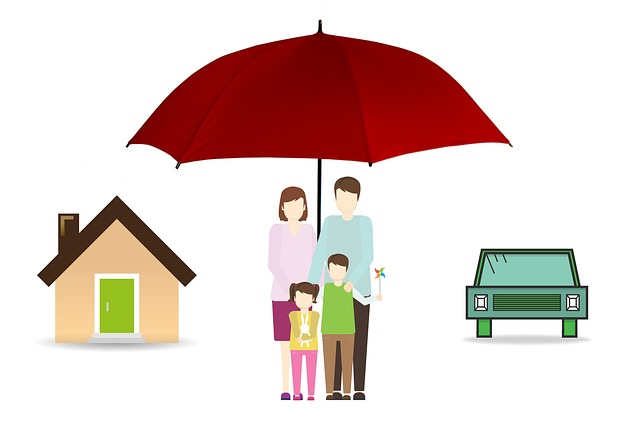Pest Control: Ensuring Safe and Effective Home Protection
Pest control is a crucial aspect of maintaining a healthy and comfortable living environment. From tiny insects to larger rodents, unwanted pests can cause significant damage to your property and pose health risks to your family. This article explores the importance of professional pest control services, the licensing and certification requirements for pest control operators, and how to choose the right provider to protect your home.

What licenses and certifications are required for pest control operators?
Pest control operators must obtain proper licensing and certifications to ensure they meet industry standards and comply with local regulations. The specific requirements may vary by state or country, but generally include:
-
State-issued pest control license: Most regions require pest control operators to pass an exam and obtain a license to practice legally.
-
Pesticide applicator certification: This certification demonstrates proficiency in the safe and proper use of pesticides.
-
Continuing education: Many jurisdictions require pest control professionals to complete ongoing training to maintain their licenses and stay updated on the latest industry practices.
-
Specialized certifications: Some pest control operators may pursue additional certifications for specific pests or treatment methods, such as bed bug control or integrated pest management.
When choosing a pest control service, always verify that the company and its technicians hold the necessary licenses and certifications for your area.
How does insurance protect homeowners during pest control treatments?
Insurance plays a crucial role in protecting both homeowners and pest control companies during treatments. Reputable pest control providers should carry several types of insurance, including:
-
General liability insurance: This covers property damage or bodily injury that may occur during pest control treatments.
-
Workers’ compensation insurance: This protects the company’s employees in case of work-related injuries or illnesses.
-
Professional liability insurance: Also known as errors and omissions insurance, this covers potential mistakes or oversights in pest control services.
Before hiring a pest control company, ask for proof of insurance and verify coverage limits. This ensures that you’re protected in case of any accidents or unforeseen issues during the treatment process.
What are the most common pests found in homes?
Understanding the types of pests that commonly infest homes can help you identify potential problems early and seek appropriate treatment. Some of the most frequent household pests include:
-
Ants: Various species can invade homes in search of food and water.
-
Cockroaches: These resilient pests can spread bacteria and trigger allergies.
-
Rodents: Mice and rats can cause structural damage and spread diseases.
-
Termites: These wood-destroying insects can silently damage your home’s structure.
-
Bed bugs: These elusive pests can quickly infest bedrooms and living areas.
-
Spiders: While most are harmless, some species can be venomous.
-
Flies: These insects can spread bacteria and contaminate food.
Professional pest control services can effectively address these and other common household pests, tailoring treatments to your specific needs.
How do pest control professionals ensure safety during treatments?
Safety is paramount in pest control operations, especially when treatments are conducted in homes. Professional pest control technicians employ various measures to ensure the safety of residents, pets, and the environment:
-
Proper pesticide selection: Technicians choose EPA-approved pesticides that are effective against target pests while minimizing risks to humans and pets.
-
Integrated Pest Management (IPM): This approach focuses on prevention, monitoring, and using the least toxic methods first before resorting to chemical treatments.
-
Precise application techniques: Professionals use targeted application methods to minimize pesticide exposure in non-target areas.
-
Safety equipment: Technicians wear appropriate personal protective equipment (PPE) during treatments.
-
Clear communication: Pest control professionals provide detailed instructions to homeowners on preparing for treatments and any necessary precautions to take afterward.
-
Follow-up inspections: Regular follow-ups ensure the effectiveness of treatments and allow for adjustments if needed.
What factors influence the cost of pest control services?
The cost of pest control services can vary significantly based on several factors. While specific pricing information changes over time and differs by location, here’s a general overview of what influences pest control costs:
-
Type of pest: Some pests require more complex or long-term treatments, affecting the overall cost.
-
Severity of infestation: Larger or more established infestations typically require more extensive treatments.
-
Size of the property: Larger homes or properties may incur higher costs due to increased treatment areas.
-
Treatment frequency: One-time treatments are generally less expensive than ongoing service plans.
-
Location: Prices can vary based on your geographic location and local market conditions.
-
Company reputation and expertise: Well-established companies with highly trained technicians may charge more for their services.
| Service Type | Typical Price Range | Frequency |
|---|---|---|
| One-time general pest control | $250 - $600 | As needed |
| Ongoing pest control plan | $40 - $70 | Monthly or quarterly |
| Termite treatment | $1,000 - $2,500 | Annual inspection, treatment as needed |
| Bed bug treatment | $1,000 - $2,500 | As needed |
| Rodent control | $150 - $500 | Initial treatment with follow-ups |
Prices, rates, or cost estimates mentioned in this article are based on the latest available information but may change over time. Independent research is advised before making financial decisions.
In conclusion, professional pest control services play a vital role in protecting homes from infestations and the damage they can cause. By understanding the importance of proper licensing, insurance, and certification, homeowners can make informed decisions when choosing a pest control provider. Regular inspections and treatments by qualified professionals can help maintain a pest-free environment, ensuring the safety and comfort of your home.






